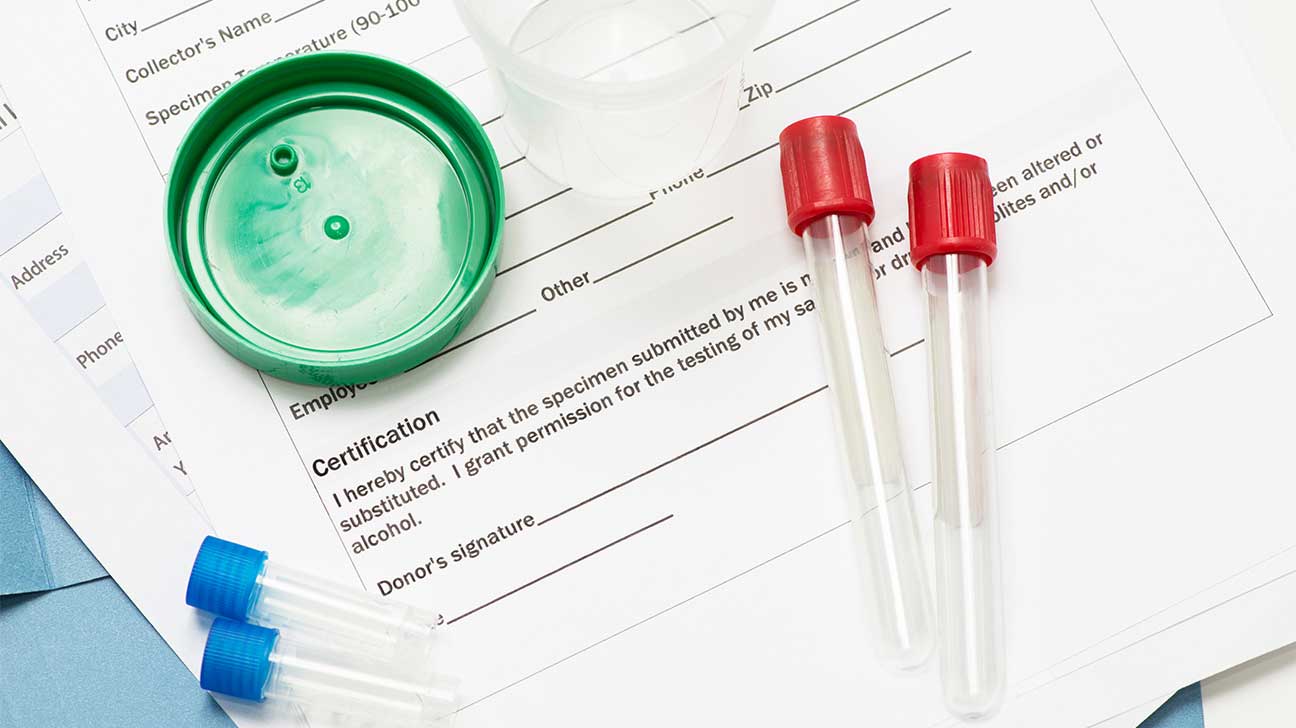How Long Can Librium (Chlordiazepoxide) Be Detected In Your System?
Librium is a drug used to treat anxiety and high blood pressure. It also has a possibility of substance abuse, as it can cause a euphoric feeling. Therefore, it is often a part of testing for drug abuse.

Librium is an oral type of benzodiazepine (benzo) medication commonly prescribed to treat anxiety disorders.
It is commonly tested for in 5-panel drug tests because it can be used recreationally due to its euphoric effects.
This type of benzodiazepine drug is detectable in your system for anywhere between 6 hours to 90 days, depending on the type of testing being used.
Librium (Chlordiazepoxide) Detection Times
Drug detection windows for Librium vary depending on what type of testing is being done.
How Long Does Librium Stay In Your Urine?
A urine test can detect Librium use for up to 5 days. Urine tests are quite common for all types of drug testing, as they are fast, inexpensive, and readily available.
How Long Does Librium Stay In Your Blood?
Blood tests have some of the smallest detection windows but also have the fastest results. Librium can be detected in a person’s blood for 6 to 48 hours after it is taken.
This form of testing is not often utilized where Librium or other benzo use is suspected, as the detection window is so small.
How Long Does Librium Stay In Your Saliva?
Librium can be detected in a person’s saliva for 1 to 10 days.
Similar to blood testing, the detection window for Librium in the saliva is more limited than other forms of testing, and is therefore less often used.
How Long Does Librium Stay In Your Hair?
Hair drug tests are the longest-term form of drug testing. For up to 90 days, drugs like Librium can be detected in human hair. However, it will take 7 to 10 days to be detectable.
This is because the hair has to grow long enough to be utilized in the testing.
What Affects The Detection Times For Librium?
As with many other types of substances, a variety of factors can change the length of time that Librium can be detected.
Some factors include:
- age and sex
- body fat percentage and weight
- genetic factors
- liver function
- concentrations of Librium and other drugs in the system
- frequency of drug use
How Does Librium Work?
After ingestion, Librium travels towards the central nervous system and increases the amount of a neurotransmitter called gamma-aminobutyric acid (GABA) by binding to certain receptors.
GABA slows activity in the brain, leading to a decrease in anxiety and blood pressure, and an increase in sedation, euphoria, and more.
There are three types of benzodiazepines: short-acting (such as triazolam), long-acting (such as diazepam), and intermediate (such as oxazepam). Librium is an intermediate- to long-acting drug.
Librium Side Effects And Withdrawal Symptoms
Since it was approved by the U.S. Food and Drug Administration (FDA) in 1960, Librium has been used for its anti-anxiety and sedative effects.
Other drugs used to treat symptoms of anxiety can also be susceptible to abuse, leading to Xanax addiction, Ativan abuse, or Valium misuse.
It is also sometimes used to manage alcohol withdrawal and detoxification symptoms and can be used similarly to methadone, a drug abuse treatment for opioids.
Librium can also create a sense of euphoria, stimulate appetite, lower blood pressure, and has some pain-relieving properties.
Other side effects can include:
- drowsiness, confusion, or dizziness
- impaired muscle control and movement disorders
- skin problems and edema
- minor irregularities in the menstrual cycle
- nausea or constipation
- decreased libido
Serious side effects can include:
- blood disorders
- jaundice
- liver dysfunction
- irregular heartbeat
Speak to your prescribing healthcare provider if you are experiencing any of these side effects.
Withdrawal Symptoms
During the Librium detox process, it is possible to have severe withdrawal symptoms. Proper medical care and monitoring are required during this process, as is tapering off use of the drug.
Withdrawal symptoms can include:
- increased anxiety and agitation
- increased heart rate and high blood pressure
- tremors, seizures, and convulsions
- vomiting and cravings
Get Treatment For Librium Addiction
If you or a loved one is looking for treatment for benzodiazepine abuse, we are here to help.
The healthcare professionals at Spring Hill Recovery Center are prepared to provide just the right treatment options for your needs.
We know that finding proper addiction treatment can be challenging, but you do not have to go it alone. Call us today to find out how we can help with your substance use disorder.
- Mayo Clinic Laboratories — Benzodiazepines https://www.mayocliniclabs.com/test-catalog/drug-book/specific-drug-groups/benzodiazepines
- National Institute of Health (NIH) | National Center for Biotechnology Information — Chlordiazepoxide https://www.ncbi.nlm.nih.gov/books/NBK547659/
- National Institute of Health (NIH) | National Center for Biotechnology Information — Chlordiazepoxide vs. methadone in opiate withdrawal: a preliminary double blind trial https://pubmed.ncbi.nlm.nih.gov/2646089/
- ScienceDirect — Biological Half-Life of Chlordiazepoxide and Its Metabolite, Demoxepam, in Man https://www.sciencedirect.com/science/article/abs/pii/S0022354915381375


